Abstract
A controlled field trial of a serogroup A meningococcal polysaccharide vaccine was conducted at three locations in Egypt during the winter cerebrospinal meningitis (CSM) season of 1971-72. The study population consisted of schoolchildren 6-15 years of age. No cases of serogroup A meningococcal CSM occurred in the group of students vaccinated with the test vaccine whereas 8 cases occurred in the control group vaccinated with tetanus toxoid, and 151 cases occurred in an unvaccinated contrast group. The case rate was significantly different between the test and control groups as well as between the test and contrast groups but was similar between the control and contrast groups. The previously demonstrated safety of the vaccine was confirmed. A significant serological response was elicited in the majority of the vaccinated students.
Full text
PDF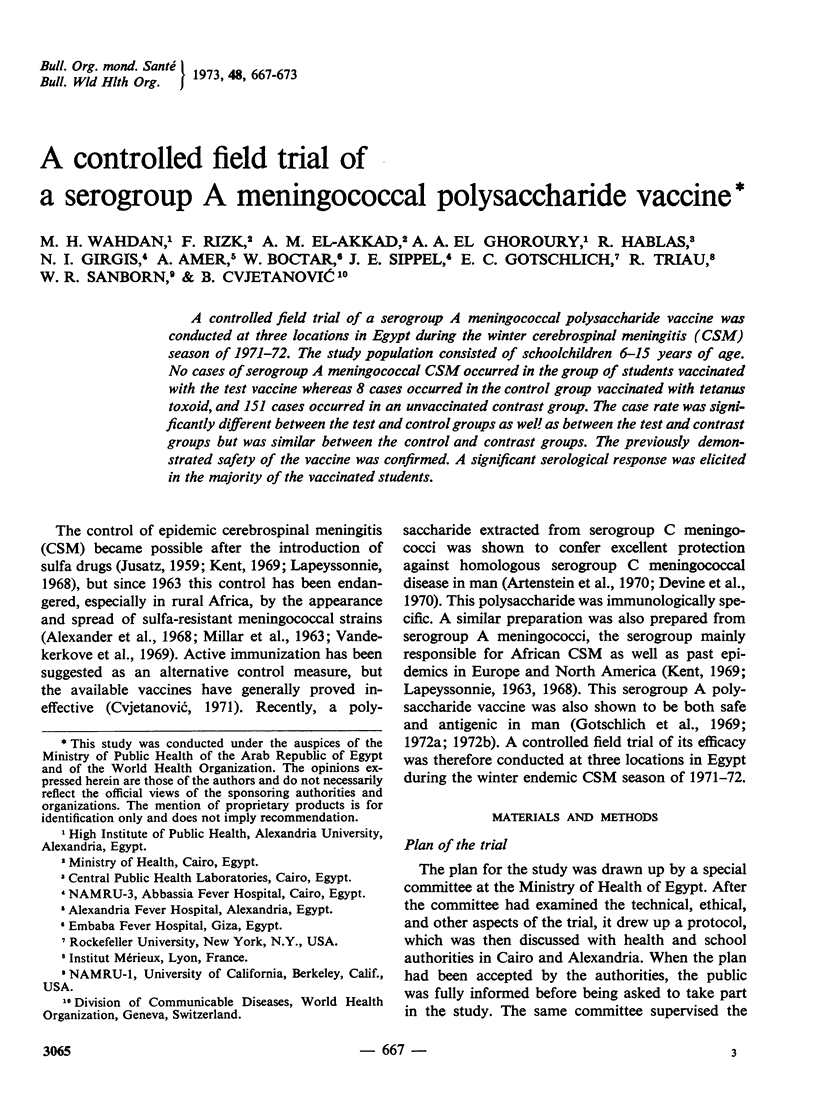
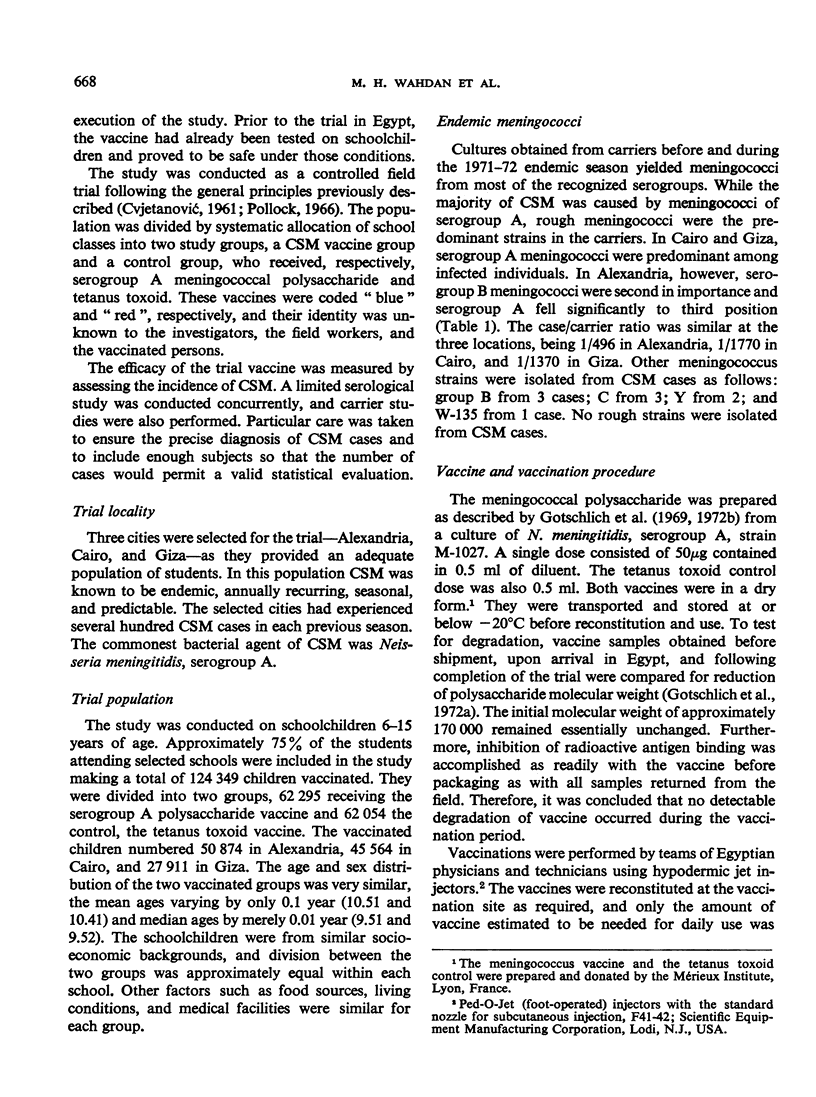
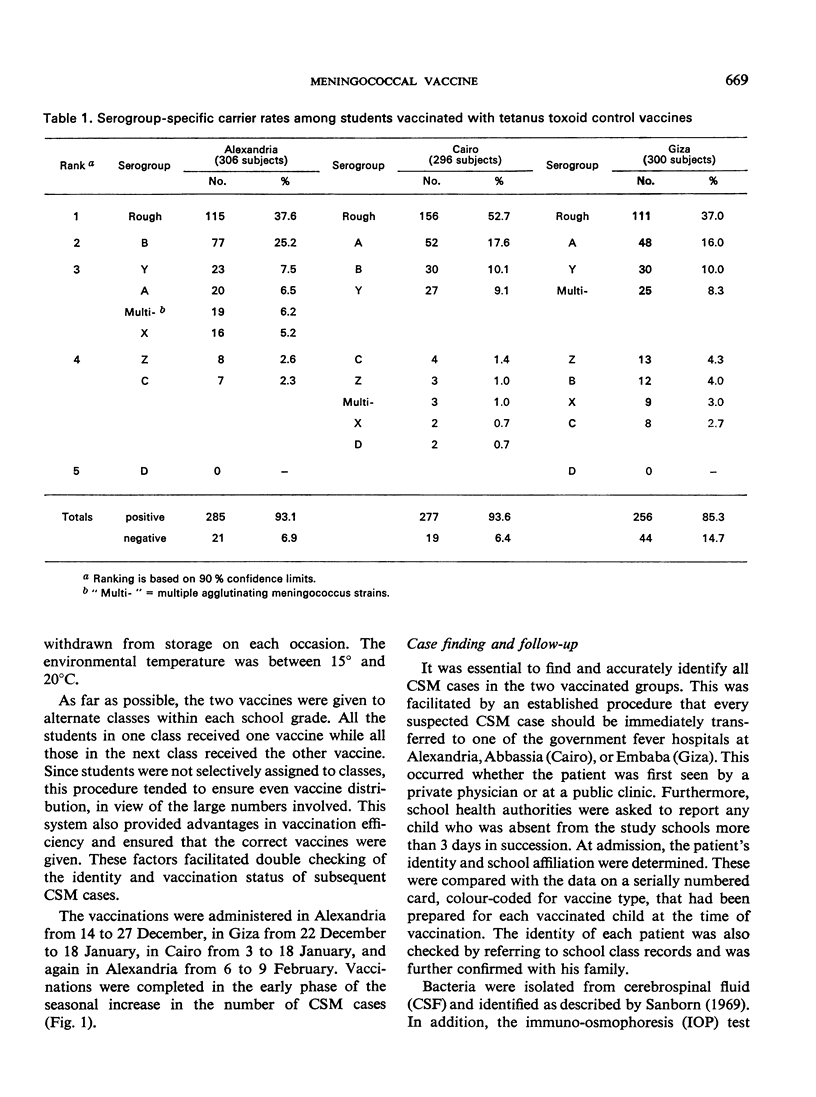
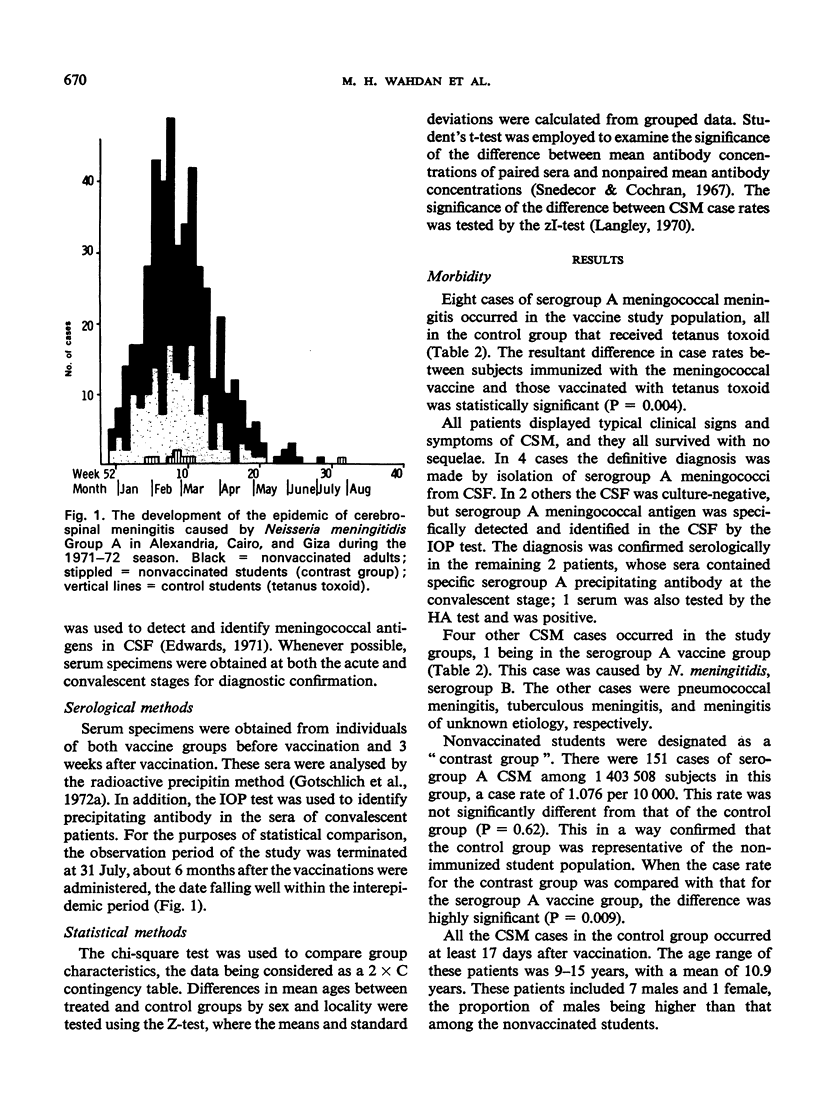
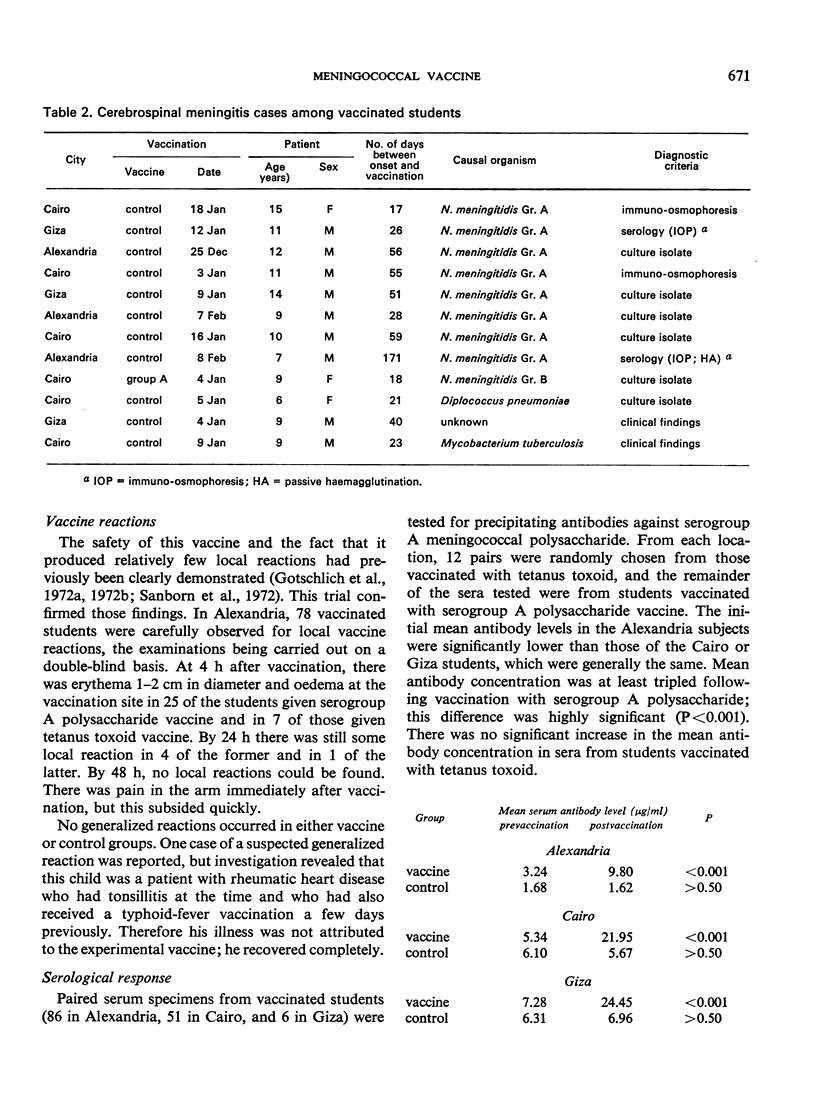
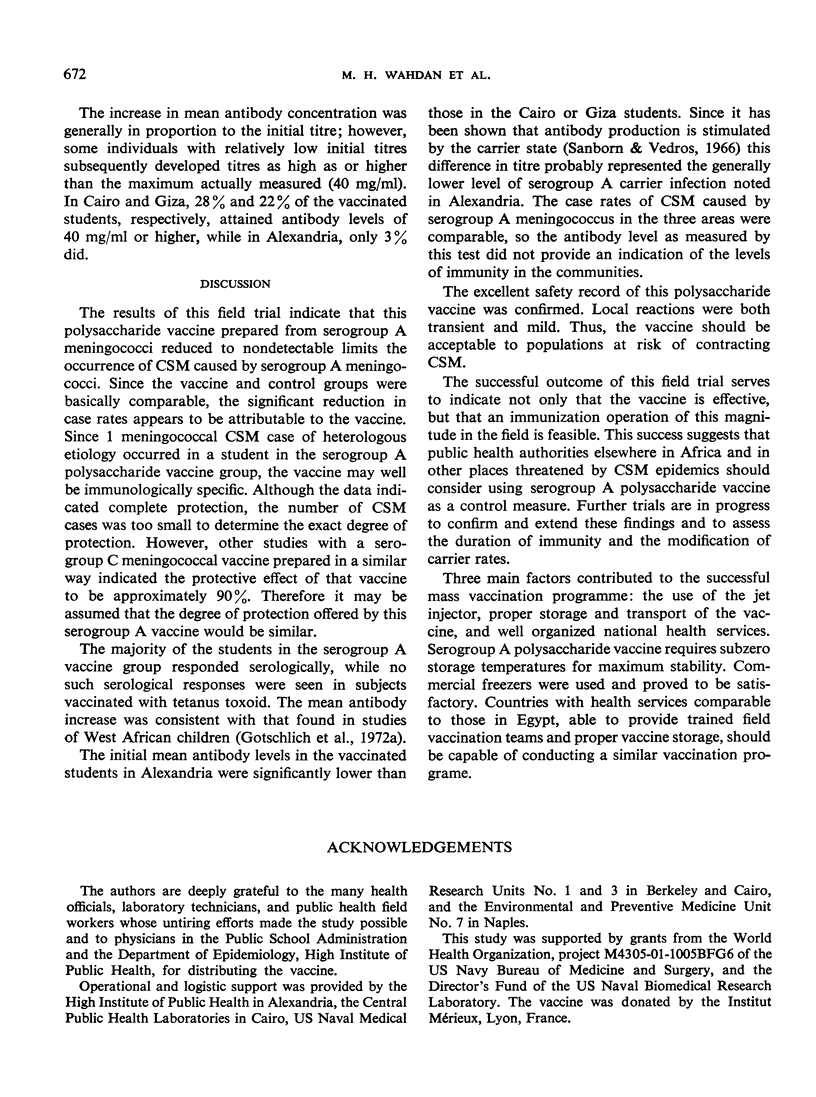
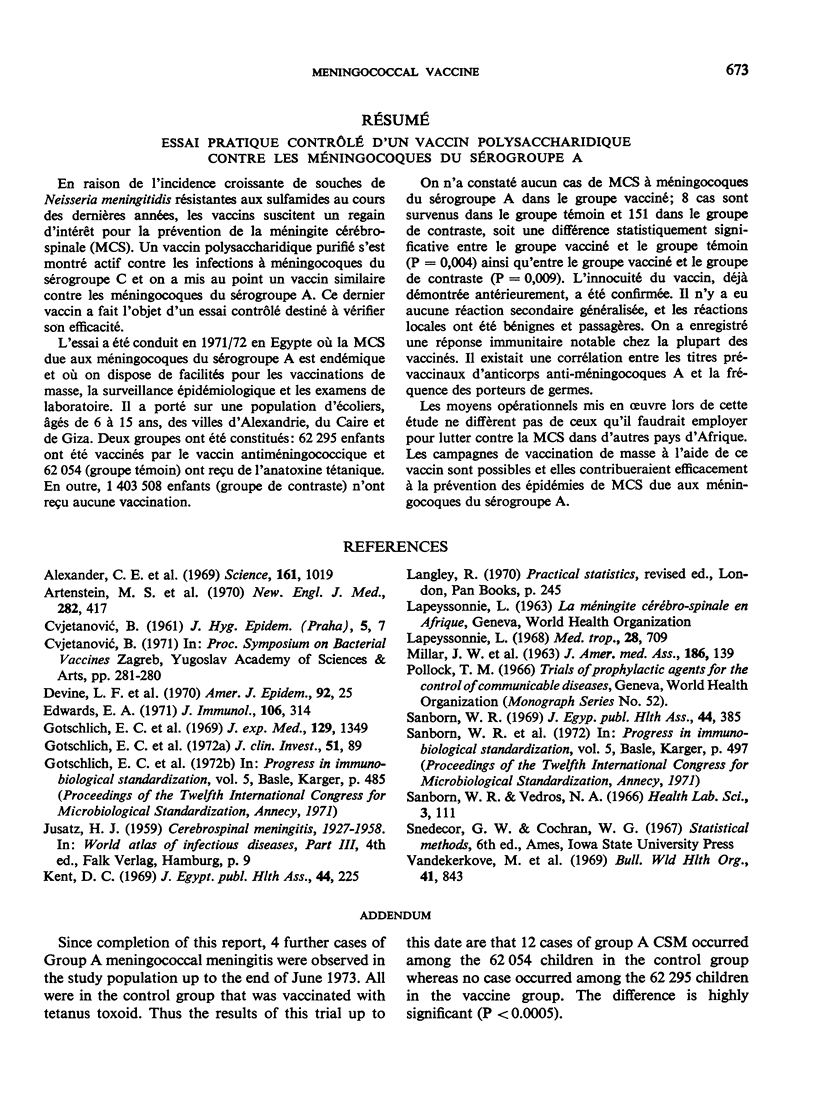
Selected References
These references are in PubMed. This may not be the complete list of references from this article.
- Alexander C. E., Sanborn W. R., Cherriere G., Crocker W. H., Jr, Ewald P. E., Kay C. R. Sulfadiazine-resistant group A Neisseria meningitidis. Science. 1968 Sep 6;161(3845):1019–1019. doi: 10.1126/science.161.3845.1019. [DOI] [PubMed] [Google Scholar]
- Artenstein M. S., Gold R., Zimmerly J. G., Wyle F. A., Schneider H., Harkins C. Prevention of meningococcal disease by group C polysaccharide vaccine. N Engl J Med. 1970 Feb 19;282(8):417–420. doi: 10.1056/NEJM197002192820803. [DOI] [PubMed] [Google Scholar]
- CVJETANOVIC B. Controlled field trials of prophylactics (with special reference to typhoid vaccines). J Hyg Epidemiol Microbiol Immunol. 1961;5:7–21. [PubMed] [Google Scholar]
- Edwards E. A. Immunologic investigations of meningococcal disease. I. Group-specific Neisseria meningitidis antigens present in the serum of patients with fulminant meningococcemia. J Immunol. 1971 Feb;106(2):314–317. [PubMed] [Google Scholar]
- Gotschlich E. C., Liu T. Y., Artenstein M. S. Human immunity to the meningococcus. 3. Preparation and immunochemical properties of the group A, group B, and group C meningococcal polysaccharides. J Exp Med. 1969 Jun 1;129(6):1349–1365. doi: 10.1084/jem.129.6.1349. [DOI] [PMC free article] [PubMed] [Google Scholar]
- Gotschlich E. C., Rey M., Triau R., Sparks K. J. Quantitative determination of the human immune response to immunization with meningococcal vaccines. J Clin Invest. 1972 Jan;51(1):89–96. doi: 10.1172/JCI106801. [DOI] [PMC free article] [PubMed] [Google Scholar]
- Kent D. C. Meningitis as an epidemic disease. J Egypt Public Health Assoc. 1969;44(4):225–230. [PubMed] [Google Scholar]
- Lapeyssonnie L. Etude épidémiologique comparée de la méningite cérébrospinale méningoccique dans les régions tempérées et dans la ceinture de la méningite en Afrique. Essai de synthèse. Med Trop (Mars) 1968 Nov-Dec;28(6):709–720. [PubMed] [Google Scholar]
- MILLAR J. W., SIESS E. E., FELDMAN H. A., SILVERMAN C., FRANK P. IN VIVO AND IN VITRO RESISTANCE TO SULFADIAZINE IN STRAINS OF NEISSERIA MENINGITIDIS. JAMA. 1963 Oct 12;186:139–141. doi: 10.1001/jama.1963.63710020008016. [DOI] [PubMed] [Google Scholar]
- Sanborn W. R., Vedros N. A. Possibilities of application of complement fixation, indirect hemagglutination and fluorescent antibody tests to epidemiology of meningococcal infection. Health Lab Sci. 1966 Apr;3(2):111–117. [PubMed] [Google Scholar]
- Vandekerkove M., Causse G., Lapeyssonnie L., Faucon R. Sensibilité aux sulfamides des méningocoques du sérotype A. Bull World Health Organ. 1969;41(6):843–850. [PMC free article] [PubMed] [Google Scholar]


